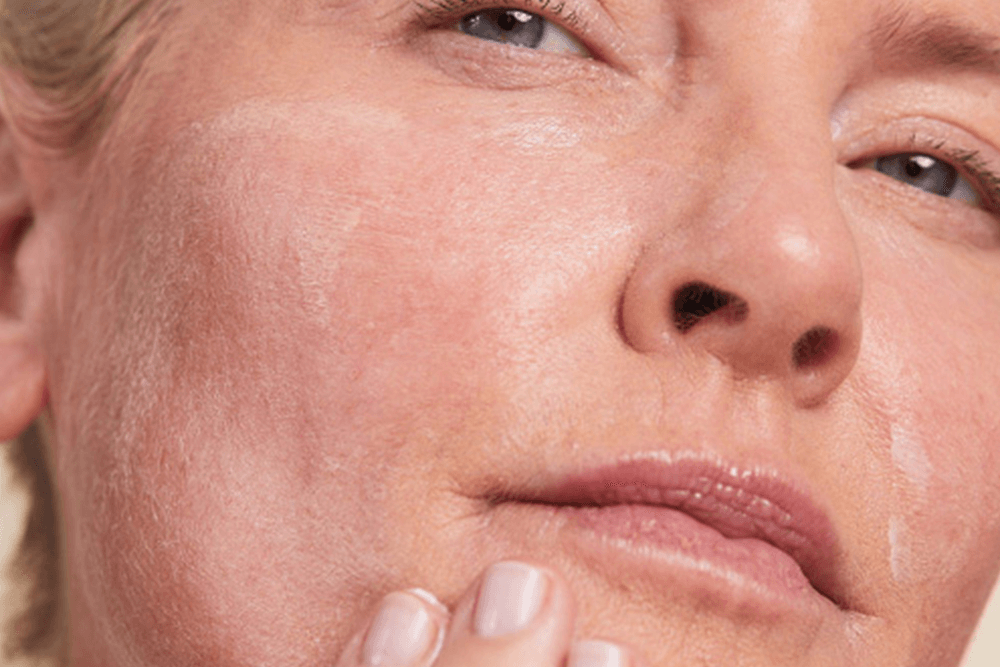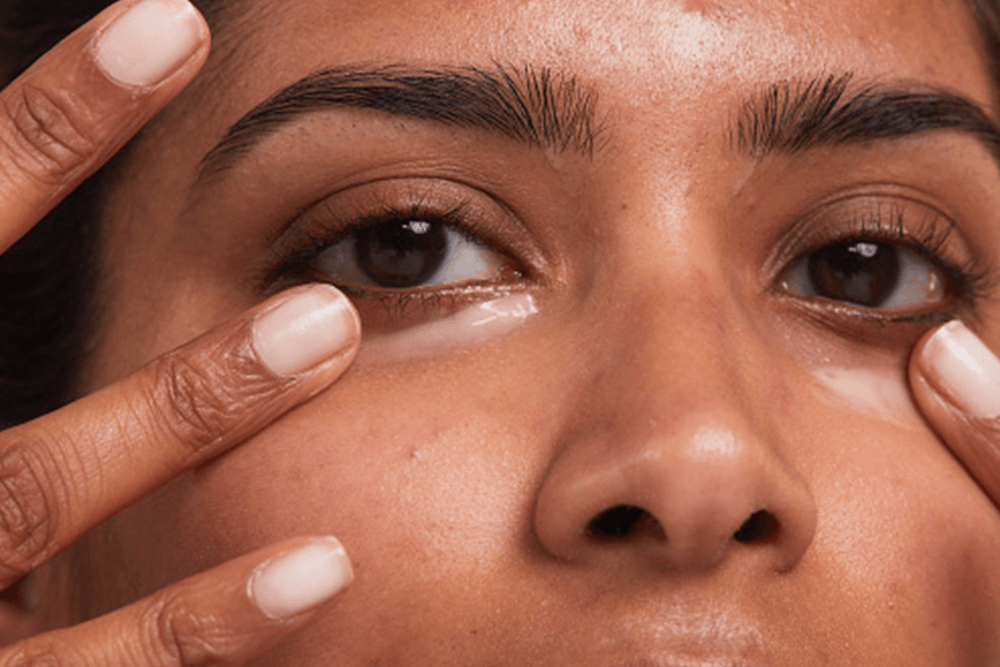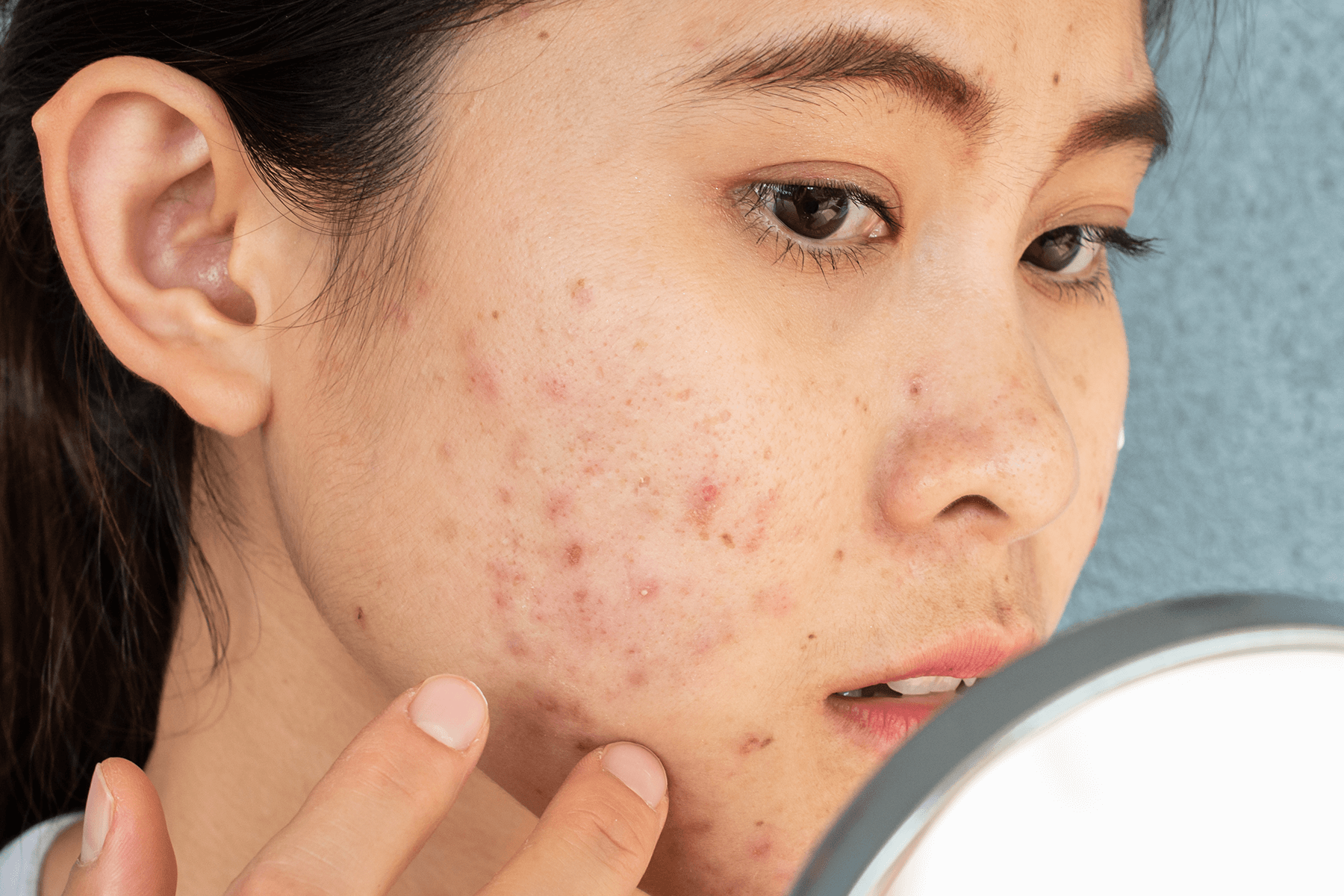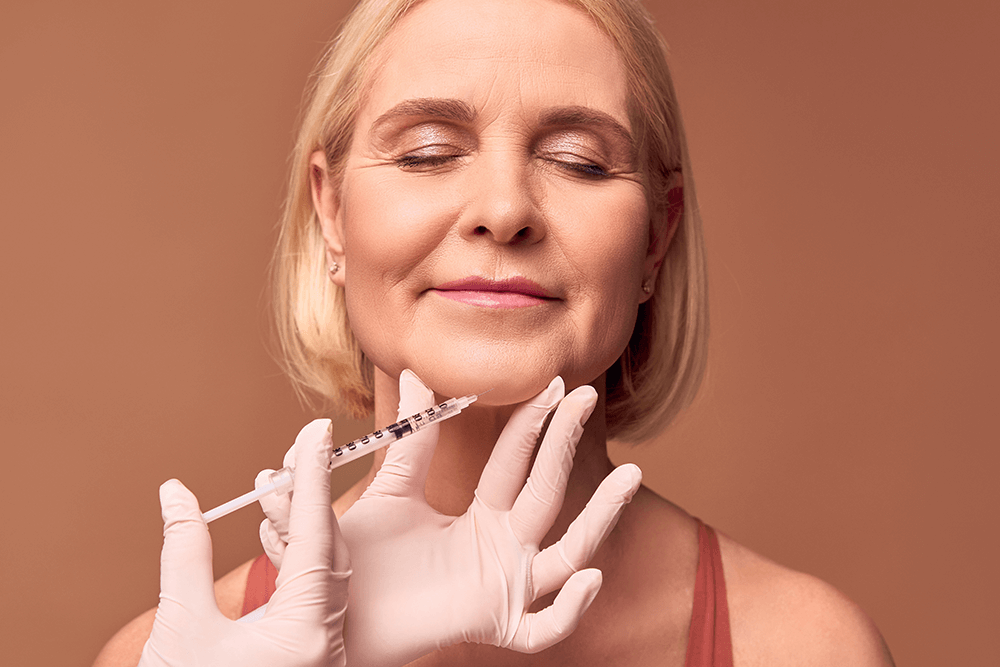The+Source
Most women approaching menopause know to prepare themselves for things like hot flashes, brain fog and mood swings, but did you know that menopause can also impact your skin? The fluctuations in hormones that come along with menopause can manifest in age spots, wrinkles and sagging skin – and with the sudden onset, it can be easy to feel like your skin has aged overnight. However, don’t fret, this is a natural part of aging that all women go through and we have the tools to alleviate the signs and symptoms that come with this new chapter of life.
Keep reading for expert advice from NYC board-certified dermatologists, Dr. Dennis Gross and Carrie Gross, CEO and co-founder of Dr. Dennis Gross Skincare, as they tackle why the skin changes during this time and how to combat some of its unsettling physical changes.
What is menopause and when does it occur?
Menopause is a natural process that marks the end of a women’s menstrual cycle and her reproductive years. Women typically experience this stage of life in their late 40’s or early 50’s and in three phases: perimenopause, menopause, and postmenopause.
Perimenopause refers to the 8-10 years before menopause when a woman’s reproductive hormone levels start to fluctuate and cause irregular periods and other menopause-like symptoms. Once a woman has gone 12 consecutive months without having a menstrual period, she is considered to be in menopause. After that year-long period without a menstrual cycle, women enter postmenopause which lasts until the end of their life.
How do hormonal changes affect the skin during menopause?
As women age, their ovaries start to produce less estrogen and progesterone, the reproductive hormones. Estrogen is responsible for collagen and elastin production – these are the proteins that make up the skin’s structure. When estrogen levels start to decline during perimenopause, the skin loses its ability to hold hydration and optimally repair itself, resulting in dryness and more pronounced signs of aging like wrinkles and sagging skin. As estrogen continues to decline throughout menopause, skin aging accelerates, and changes in skin texture, tone and volume become more visible.
What are the most common symptoms of menopause?
Although every woman has their own unique experience with menopause, there are a few common skin changes that come along with this transition. The most common symptoms of menopause are dryness, loss of collagen, hyperpigmentation, increased sensitivity and breakouts.
What are the skincare ingredients that can help with some of the symptoms?
Retinol is a great ingredient that increases cell turnover and stimulates collagen production – it helps fight fine lines and wrinkles, keeps pores clear, prevents breakouts, and diminishes hyperpigmentation. Although this ingredient has many benefits for the skin, it’s also known to cause irritation – which can be amplified if you’re already experiencing increased sensitivity during menopause. That’s why I really love the Advanced Retinol + Ferulic Overnight Wrinkle Treatment, because it combines retinol with three plant-based extracts: bakuchiol, ferulic acid and rambutan, that help to soothe and calm the skin. When these soothing ingredients are combined with retinol they increase the skin’s tolerability of retinol and decrease the risk of irritation and sensitivity.
To help with hydration, look for ingredients that build your skin's barrier like bakuchiol and niacinamide. This helps not only lock in moisture but also helps prevent skin from becoming irritated.
What skincare ingredients should women avoid during menopause?
Stay away from moisturizers that are formulated with alcohol and fragrance because they can strip the skin and exacerbate dryness. Also, avoid exfoliating with harsh physical scrubs – this can cause irritation. Instead, look for products with alpha and beta hydroxy acids like our two-step Alpha Beta Extra Strength Daily Peel to effectively exfoliate, without irritating your skin. In step one of the peel, a blend of seven acids gently exfoliate the skin and increases skin density, while step two neutralizes acid activity, hydrates, and delivers anti-aging actives for dramatically smoother, more radiant, healthier-looking skin.
Any lifestyle/diet changes that can help with menopausal skin?
When it comes to treating menopausal skin changes, look at your lifestyle as a whole and remember to be kind to yourself. Menopause is a natural part of aging, so you shouldn’t let these changes get the best of you and cause you stress.
If you’re consistent with your daily skincare regimen, wear sunscreen every single day, get enough quality sleep, exercise, and avoid excessive drinking and smoking, you deserve a pat on the back because you’re doing all of the right things to take care of your body and mind during this time.
When it comes to diet, try your best to stay hydrated throughout the day, and eat foods that are rich in antioxidants and healthy fats. A diet that’s rich in color is going to keep the skin strong, soft, and glowing from the inside out.
Carrie’s Tips On How To Care For Menopausal Skin
Skin changes can be frustrating – but rest assured Carrie has you covered with some pro-aging skincare tips to help you look and feel good in your skin.
Stay on top of sun protection
When it comes to fighting signs of skin aging, using an SPF daily is the best beauty investment you’ll ever make! No matter your age or skin type, wearing an SPF is the key to maintaining healthy, youthful-looking skin. However, during menopause, it’s crucial to protect your skin. The chances of developing skin cancer increase as we get older. In addition to reducing your risk of cancer, SPF can also help diminish the look of age spots and wrinkles and prevent new ones from forming. I love our All-Physical Lightweight Wrinkle Defense SPF 30 because it’s formulated with antioxidants and has a lightweight finish that doesn’t leave a white cast.
Invest in professional collagen-stimulating treatments & devices
The earlier you can start treatments that boost collagen, the sooner you will reap the benefits. I utilize both in-office treatments like lasers and at-home LED devices like the DRx SpectraLite FaceWare Pro and BodyWare, to stimulate collagen production and maintain plump, healthy-looking skin. It's also imperative to have regular check-ins with your dermatologist or aesthetician to accurately track your progress and results. Life changes as does our skin, but having expert advice can transform your skin health journey.
Load up on vitamin C
One of the best ways to slow signs of skin aging is to use antioxidant-rich skincare daily. Vitamin C is one of the most-talked about antioxidants – and for good reason. The powerhouse ingredient helps to neutralize free radicals, which break down collagen and elastin and leave the skin looking dull, saggy and sallow-looking. By incorporating a vitamin C like the Vitamin C Lactic 15% Vitamin C Firm & Bright Serum into your daily skincare regimen, you’ll help keep your skin protected, while visibly evening skin tone and strengthening skin fibers.
Exfoliate often
Regular exfoliation is necessary for mature skin because as we age our cell turnover slows down. This means that it takes longer for our bodies to shed old, dead skin cells and generate new ones. When old cells start to pile up on the skin’s surface, it can leave the skin looking dull, rough, and dry, so it’s important to exfoliate regularly to remove the old cells and make way for fresh, new ones. I use our Alpha Beta Daily Peel every day to gently exfoliate, thicken the skin, and improve tone and texture. Our peels come in three separate strengths including: Ultra Gentle, Universal and Extra Strength, so you’re able to tailor the peels to your skin’s needs, as they change day-to-day.
Repair & strengthen your moisture barrier
One of the most common skin concerns women face during menopause is dry skin. This is because once estrogen levels start to decline, the body’s ability to produce oils and collagen slows down, leaving the skin dry and itchy. To combat dryness, look for moisturizers that feature ingredients like ceramides, hyaluronic acid, and squalene, to help seal in hydration and strengthen the skin’s moisture barrier. My favorite moisturizer for dry skin is our new Alpha Beta Daily Moisturizer because it’s packed with squalane and ceramides to help fortify the moisture barrier and replenish skin.
Discover Dr. Dennis Gross Skincare for All Your Skincare Needs
For more skincare tips from the experts at Dr. Dennis Gross, check out our blog’s newest content today. Shop the collection of Dr. Dennis Gross bestselling skincare backed by dermatologists.







